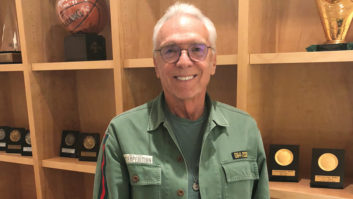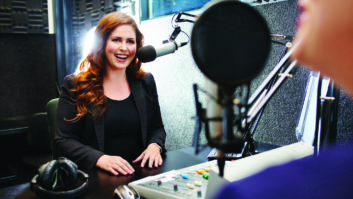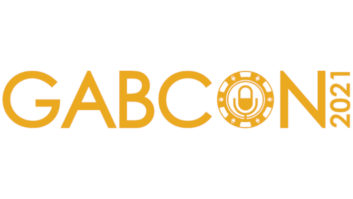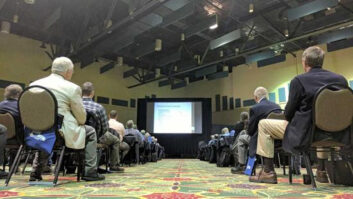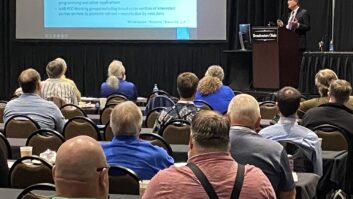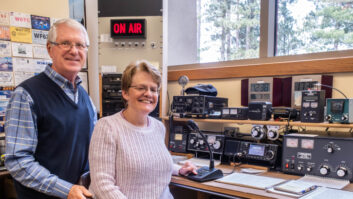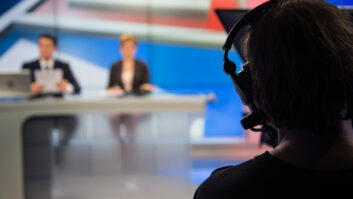The growth of podcasting is undeniable. How much radio should shift its focus toward local podcasts is certainly debatable and should vary by situation. Yet, as I visit radio stations around the country, many of the same misconceptions surface often.
1. Podcasting will cannibalize your over-the-air audience.
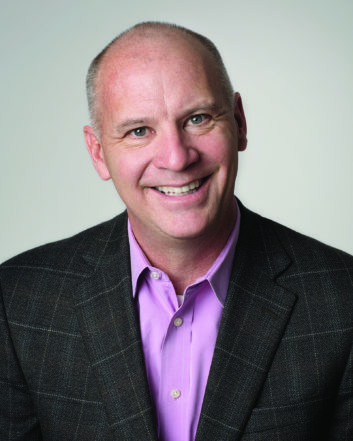
We found ourselves debating this issue when online streaming arrived. We now realize that few people have probably discovered streaming and abandoned their radios because AM and FM programming became available there. In fact, there’s no evidence that repurposing some of the content of your morning show as a podcast, for example, causes people to listen to you less via the radio.
In an age when our listeners are consuming media constantly, anywhere and everywhere, “We can’t worry about ‘giving it away,’” says consultant Tracy Johnson. “Raise the profile and importance of your brands by exposing your content wherever you can.”
That’s why national TV personalities follow this strategy, posting content anywhere and everywhere. They are competing for their audience’s time, attention and share of mind — not just at the time their program airs, but 24/7. If Jimmy Fallon becomes less relevant to a potential viewer because James Corden is getting all the attention on Facebook, there’s less likelihood of those who happen to be watching TV late tonight choosing Fallon.
In fact, “there is a generational expectation that content will be available on any device at any time,” says Steve Goldstein of Amplifi Media. The question we need to ask, says Steve, is “What can I do to attract listeners on all platforms?”
As NPR VP/News Sarah Gilbert pointed out in this column recently, its podcasting audience and on-air audience are both at all-time highs.
That being said, Johnson takes issue with simply podcasting entire episodes of a multi-hour radio show. “That’s not a service. It’s an ordeal. Curate the best moments and make them available in bite-sized chunks the way ‘Saturday Night Live’ curates their best segments and makes them available. Or create unique content that wins new fans in a new space.”
2. Everybody should have a podcast.
“Everyone could have a podcast, but only if they have a great idea, concept and vision,” says Johnson.
Goldstein adds, “Remember when websites were new and we pushed every personality to have a blog? Turns out a lot of DJs are bad writers without much to say. That didn’t enhance their image a bit.”
3. Podcasting is free.
Hardly. The time and effort a staff puts into podcasting are an investment. Would there be a greater return on that investment if it’s put into a radio station’s on-air product? Goldstein also reminds us that time is the investment that consumers make to listen, and we don’t want them to regret their investment either.
[KSL(AM/FM) Heats Up in “Cold”]
4. You can’t do a podcast about music.
Although music royalty issues make it darned near impossible to play even brief snippets of music — except from licensed stock music libraries — some of the most successful podcasts tell the stories behind the music.
As podcaster Mark Ramsey told me, “If I were writing a book about music, I wouldn’t play the music in the book either.”
5. “Hey, morning show! This will be easy. Just do an extra 15 minutes after your air shift.”
That could be a good idea for a podcast, but not if it’s treated as an afterthought. “Podcasting requires a commitment,” Johnson warns.
6. People won’t listen to a 15-minute commercial.
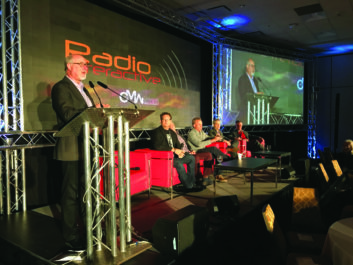
Goldstein and I co-produce a podcast for Trader Joe’s that — we hope — isn’t perceived as a commercial. That’s the key. That Trader Joe’s sells bananas for 19 cents each is revealed, but only in the context of a real-life, amusing story about how that price was set. Many clients may request a branded podcast that tells stories about their brand, but few are interesting and transparent enough to pull it off.
7. This too shall pass.
Tired of your TV’s DVR? Want to go back to only watching live TV? Didn’t think so. Digital technology has spoiled us. We can start, pause, rewind, fast-forward, stop. Maybe you’ve found yourself wanting to forward through an uncomfortable conversation like Adam Sandler does in the movie “Click.” On-demand media has rewired our brains and shortened our attention spans, and podcasting is here to stay.
Hesitation about podcasting isn’t surprising, and the format isn’t for everyone. Neither is branding with public appearances, endorsements, video, social media or merchandise. Ultimately, if radio’s leadership wants content creators to generate more revenue from more sources, not just from ratings, they will have to rethink how they’re evaluating and compensating the talent.
Dave Beasing writes the column 21st Century PD. He can be reached at [email protected] or @DaveBeasing on Twitter.





